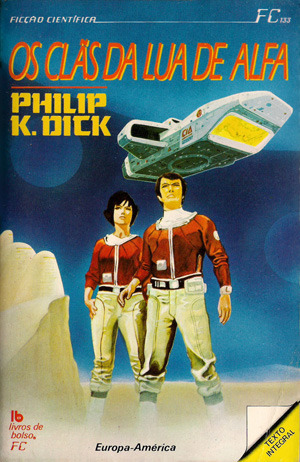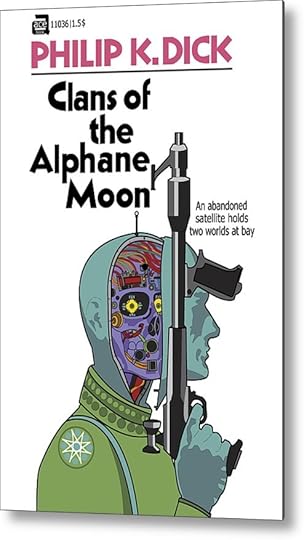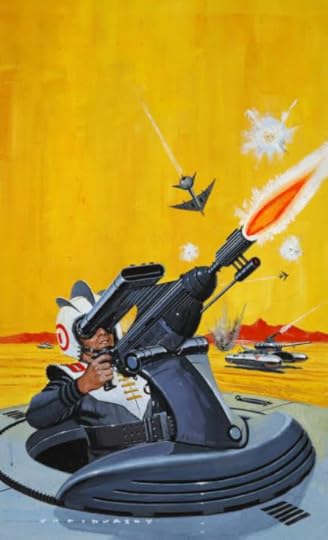What do you think?
Rate this book


180 pages, Paperback
First published November 1, 1964




Picking up his thoughts, the slime mould cautioned. "Remember, Mr. Rittersdorf, Miss Trieste is a member of the Ross Police Department."
Joan Trieste said, "so I am." She had obtained the slime mould's thoughts but not Chuck's. "Why did you think that to Mr. Rittresdorf?"
"I felt", the slime mould said, "that because of that fact you would not countenance amorous activity on his part."
The explanation seemed to satisfy her. "I think", she said to the slime mould, "that you ought to mind your own business more. Being telepaths has made you Ganymedeans terrible busybodies." She sounded cross.
"I am sorry", the slime mould said, "if I misjudged your desires, Miss Trieste; forgive me." To Chuck it thought, "Apparently Miss Trieste will entertain amorous activity on your part toward her."
"Chrissake", Joan Trieste complained. "Mind your own business, please!"
"It is difficult", the slime mould thought morosely, to no one in particular, "to please Terran girls." For the rest of the trip to the bar it carefully did not think anything at all.
"What a foul-up. You and your domestic life; it's wrecking the plans of two inter-system empires, Terra's and Alpha's--did you ever think of it that way?"Without the sci-fi element, we'd be left with just a domestic drama, perhaps one as depressingly detailed as 'Kramer vs. Kramer'. But, because equal time must be given to a space battle, we're only given the hardest punches--the salient facts of the Chuck-and-Mary dispute.
"I also heard the slime mold declare," Mary said, "that you're not a person but a simulacrum."Dick makes a point of referencing a running motif throughout his work:
"Person, shmerson," Mageboom said. "Does it matter?"
"... *There is no protection.* Being alive means being exposed; it's the nature of life to be hazardous--it's the stuff of living."He also seems to offer up a window into his soul:
"Suppose the tests show no drift, no neurosis, no latent psychosis, no character deformation, no psychopathic tendencies, in other words nothing? What do I do then?" Without unduly complimenting himself--at this point he was well beyond that--he had an inkling that was precisely what the tests would show. He did not belong in any of the settlements here on Alpha III M2; here he was a loner, an outcast, accompanied by no one even remotely resembling him.In passing, PKD offhandedly mentions one of my favorite film comedies--'Kind Hearts and Coronets'--a timeless classic which employs the kind of irreverent tone that 'Clans...' seems to embrace.
